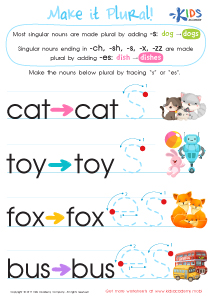Vocabulary expansion Easy Phonics Worksheets for Ages 3-8
4 filtered results
-
From - To
Discover the joy of language with our "Vocabulary Expansion Easy Phonics Worksheets" designed specifically for ages 3-8! These engaging worksheets provide a fun way to enhance your child's phonics skills and boost their vocabulary. Each colorful activity is tailored to promote early reading readiness by introducing new words and reinforcing sound-letter associations. Through interactive exercises, kids will enjoy activities that sharpen their comprehension and spelling abilities while fostering a love for learning. Perfect for home or classroom use, these resources are a fantastic tool for early educators and parents alike. Start your child's journey to literacy today with our vibrant phonics worksheets!
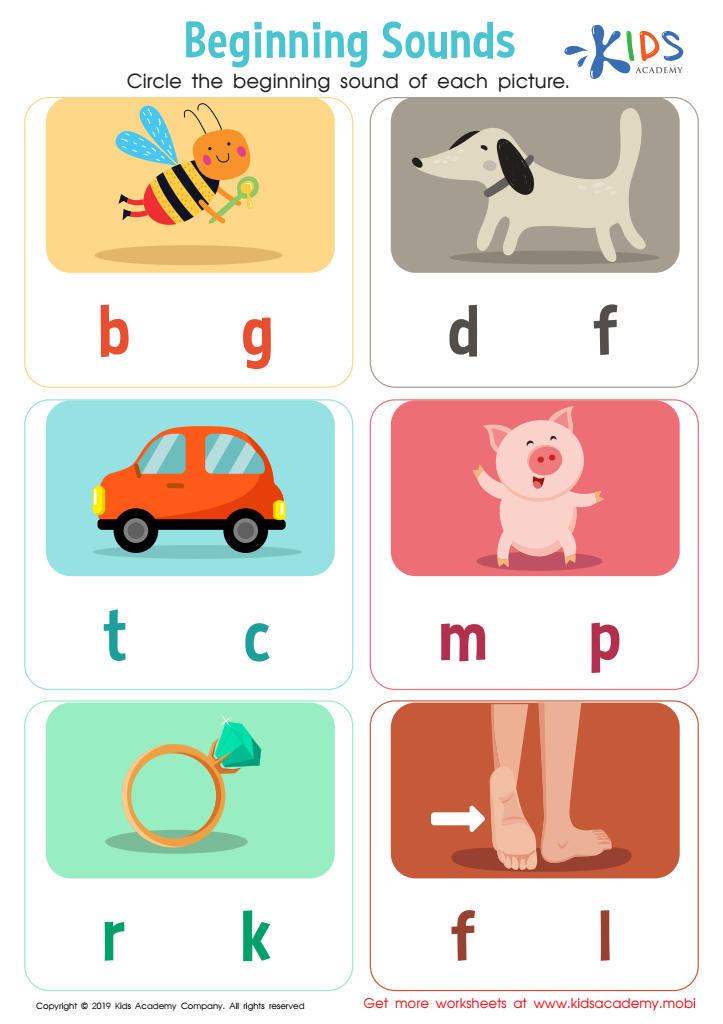

Beginning Sounds Worksheet
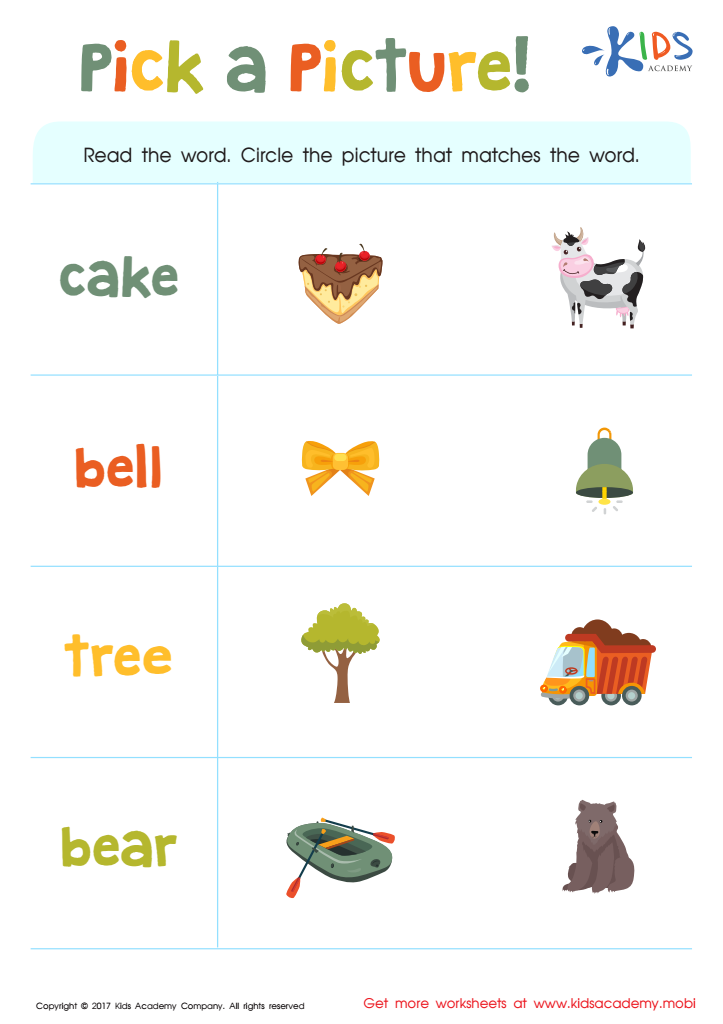

Pick a Picture Word Recognition Worksheet
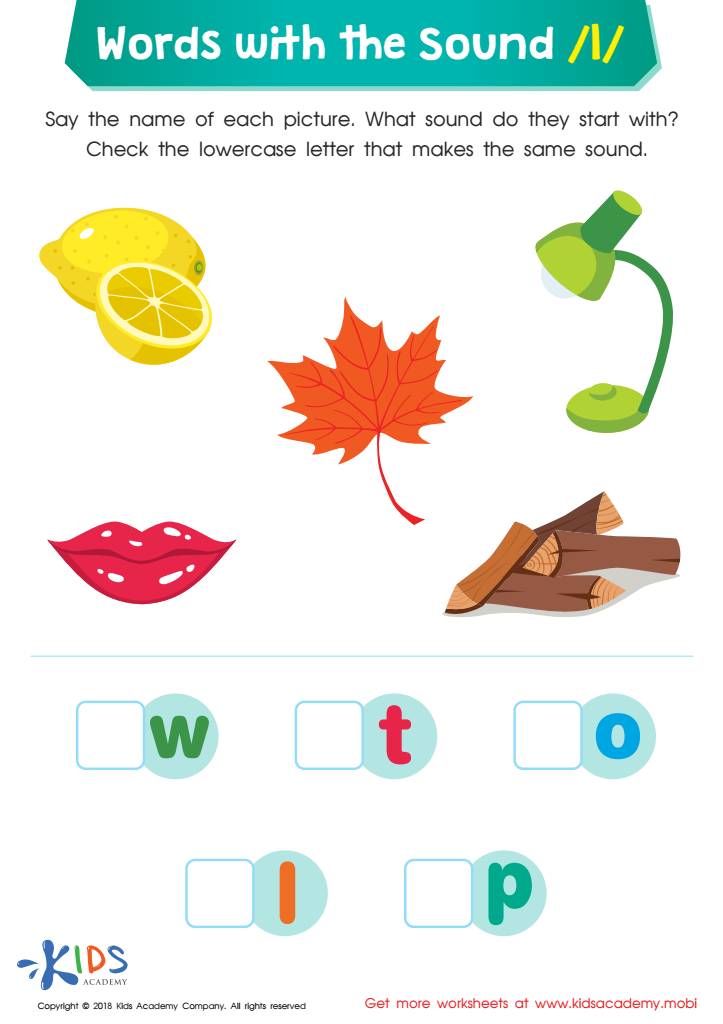

Words with Sound L Reading Worksheet
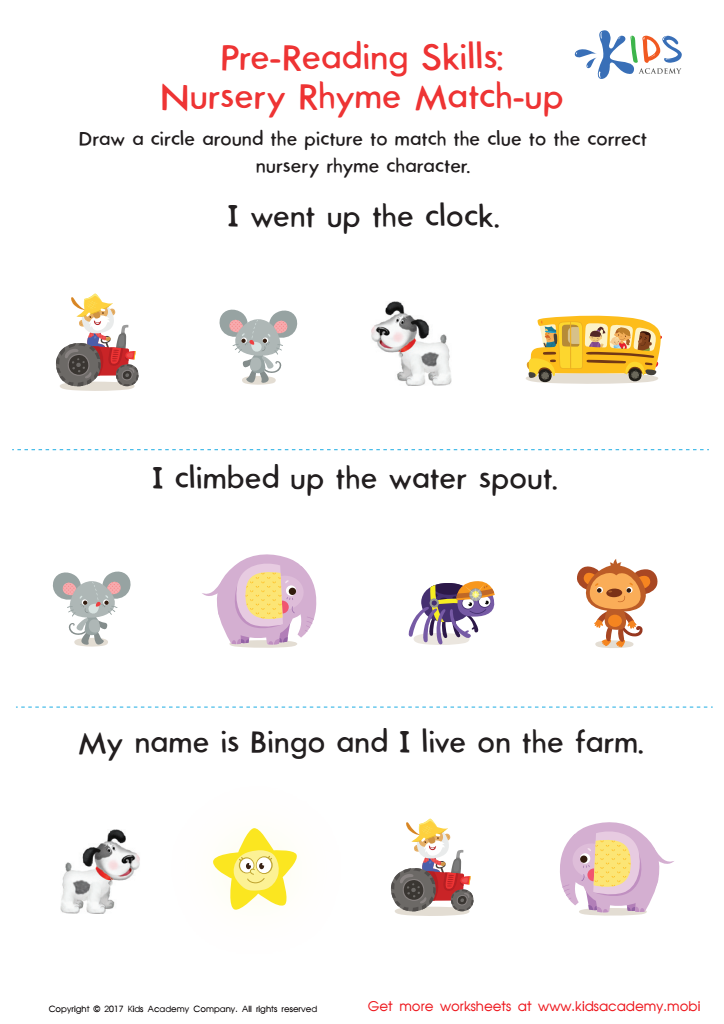

Nursery Rhyme Match–Up Worksheet
Parents and teachers should prioritize vocabulary expansion through Easy Phonics for ages 3-8 because a strong vocabulary lays the foundation for effective communication and literacy skills. At this stage, children are particularly receptive to new sounds and words, making phonics an ideal vehicle for vocabulary growth. Engaging in phonics not only helps children understand the relationships between sounds and letters but also enhances their reading ability, boosting their confidence in navigating language.
Moreover, a robust vocabulary is linked to academic success. Kids with a richer lexicon can better comprehend texts, follow instructions, and express their thoughts more clearly, all of which are vital for their future learning experiences. Additionally, fostering vocabulary through play and interactive phonics activities makes learning enjoyable, promoting a love for reading that can last a lifetime.
Furthermore, expanding vocabulary enhances cognitive development, enabling children to think critically and make meaningful connections across different subjects. This early stage presents a unique opportunity for caregivers to instill literacy habits that can lead to lifelong advantages, fostering not just literacy but also emotional and social growth. By emphasizing vocabulary through Easy Phonics, parents and teachers play a crucial role in shaping their child’s linguistic journey and overall development.
 Assign to My Students
Assign to My Students











